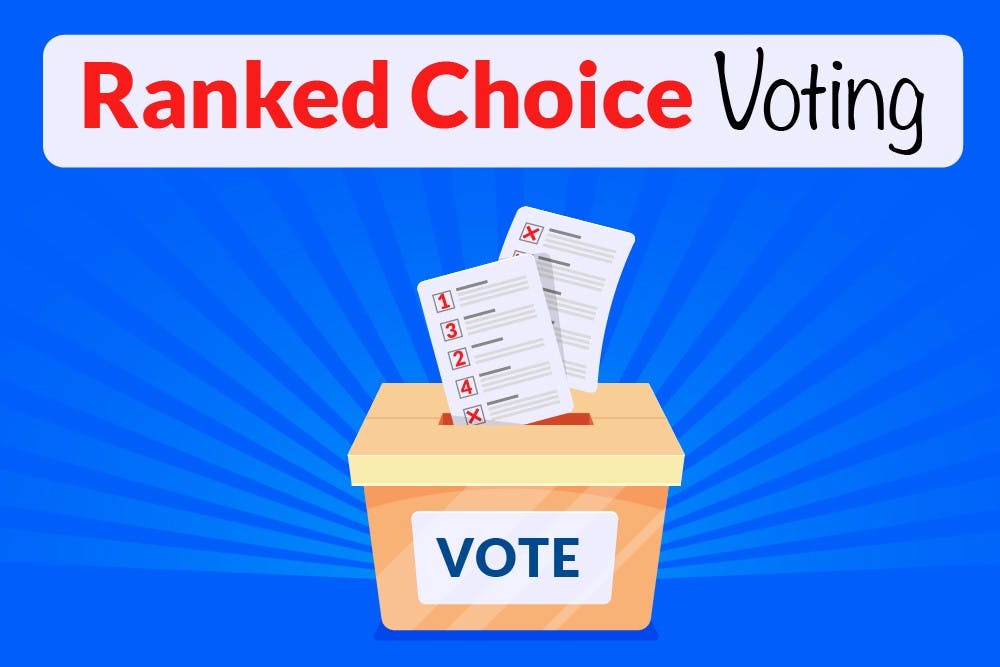Students passed two referendums by wide margins in Tuesday's election, approving both a handful of general updates to the Constitution and an amendment that kicks off major changes in the way future elections will work.
Amendment Two, which will now create instant-runoff elections through ranked-choice voting, passed with 71 percent of the vote.
It is a significant change to election procedures that mirrors other systems at universities, cities and one state across the nation. Maine uses the system in their statewide elections.
The new voting method allows students to rank candidates by order of preference on their ballots, rather than just by selecting a single choice. Students can choose to rank all candidates, just a few or still only select one.
If nobody receives 50 percent of the vote in the first round of tallies, the candidate with the lowest number of votes is eliminated, and those votes are redistributed to the voters' next choice. This continues until a candidate reaches 50 percent.
This eliminates the need to hold a separate runoff election if a candidate does not receive 40 percent of the vote.
"This system may better represent the student body as runoffs have historically had lower voter turnout, and with this system, people whose first choice does not win still have their voice heard," the amendment description says.
Graduate School Sen. Max Zinner introduced the bill, saying he thought it was "a much better way of getting what the students want,” The Plainsman reported in January.
"Texas A&M, University of Iowa, Stanford, Duke and the University of Virginia are among some of the institutions that use a similar voting system," SGA Vice President Schyler Burney told The Plainsman last week. "We kind of realized there was a need to reassess the way voting is done just after seeing multiple runoff elections done in the past few years."
It's a system that has gained popularity in recent years. Many cities across the nation including Berkeley, California; Telluride, Colorado; St. Paul, Minnesota; Cambridge, Massachusetts, and more have used ranked-choice voting for local elections for years. In 2018, Maine became the first state to use the system in a statewide election.
Amendment One — which clarifies language within the Constitution, removes a requirement that student organizations' constitutions be included in the Code of Laws and adds "Commendations" as a form of legislation — passed with 87 percent of the vote.
Commendations are "acknowledgements, congratulations or recognition of worthy merits on behalf of the Auburn University student body," according to the amendment.
Do you like this story? The Plainsman doesn't accept money from tuition or student fees, and we don't charge a subscription fee. But you can donate to support The Plainsman.





